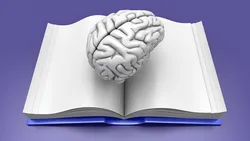
RAVEN Dream Sequence - Memory Consolidation and Insight Extraction for AGI or cognitive architecture 
RAVEN Dream Sequence is a cognitive architecture and experimental repository designed to help Artificial General Intelligence (AGI) and other cognitive architectures consolidate memories and extract insights. It includes updates to RAVEN's Nexus, short term memory notes, internal knowledge base and task logs, and goals related to dream sequences. ▼
ADVERTISEMENT
Course Feature
![]() Cost:
Cost:
Free
![]() Provider:
Provider:
Youtube
![]() Certificate:
Certificate:
Paid Certification
![]() Language:
Language:
English
![]() Start Date:
Start Date:
On-Demand
Course Overview
❗The content presented here is sourced directly from Youtube platform. For comprehensive course details, including enrollment information, simply click on the 'Go to class' link on our website.
Updated in [February 21st, 2023]
This course provides an overview of RAVEN Dream Sequence, a memory consolidation and insight extraction tool for AGI or cognitive architecture. Topics covered include Patreon & Startup News, Cognitive Architectures & Books, Experimental Repo Hygiene, Some Updates to RAVEN's Nexus, Short Term Memory Notes, Internal KB and Task Logs, Goals of RAVEN's dream sequence, Updating RAVEN's Nexus & Fumbling Through, Dream about User, Dream about RAVEN, Dream about Lessons, Metaphors, and Truths, Dream about Metaphors winner, and Recap and Next Steps.
[Applications]
The application of this course can be used to help Artificial General Intelligence (AGI) or cognitive architectures to consolidate memory and extract insights. It can also be used to update RAVEN's Nexus, create short term memory notes, and internal knowledge base and task logs. Additionally, it can be used to dream about users, RAVEN, lessons, metaphors, and truths. Finally, it can be used to recap and plan for next steps.
[Career Paths]
1. Artificial Intelligence (AI) Engineer: AI engineers are responsible for developing and deploying AI-based solutions to solve complex problems. They use a variety of techniques, such as machine learning, natural language processing, and deep learning, to create AI systems that can understand, interpret, and respond to data. AI engineers must have a strong understanding of computer science, mathematics, and statistics, as well as the ability to think critically and solve problems. The demand for AI engineers is growing rapidly, and the field is expected to continue to expand in the coming years.
2. Machine Learning Engineer: Machine learning engineers are responsible for developing and deploying machine learning algorithms and models. They must have a strong understanding of mathematics, statistics, and computer science, as well as the ability to think critically and solve problems. Machine learning engineers must also be able to interpret and analyze data, and develop algorithms and models that can be used to make predictions and decisions. The demand for machine learning engineers is growing rapidly, and the field is expected to continue to expand in the coming years.
3. Cognitive Architect: Cognitive architects are responsible for designing and developing cognitive architectures, which are systems that enable machines to think and act like humans. They must have a strong understanding of computer science, mathematics, and statistics, as well as the ability to think critically and solve problems. Cognitive architects must also be able to interpret and analyze data, and develop algorithms and models that can be used to make predictions and decisions. The demand for cognitive architects is growing rapidly, and the field is expected to continue to expand in the coming years.
4. Data Scientist: Data scientists are responsible for analyzing and interpreting large amounts of data. They must have a strong understanding of mathematics, statistics, and computer science, as well as the ability to think critically and solve problems. Data scientists must also be able to interpret and analyze data, and develop algorithms and models that can be used to make predictions and decisions. The demand for data scientists is growing rapidly, and the field is expected to continue to expand in the coming years.
[Education Paths]
1. Artificial Intelligence: Artificial Intelligence (AI) is a rapidly growing field that focuses on the development of computer systems that can think and act like humans. AI degree programs typically cover topics such as machine learning, natural language processing, robotics, and computer vision. AI is becoming increasingly important in many industries, and the demand for AI professionals is expected to continue to grow.
2. Cognitive Science: Cognitive Science is an interdisciplinary field that combines elements of psychology, neuroscience, linguistics, philosophy, and computer science. Cognitive Science degree programs typically cover topics such as cognitive psychology, artificial intelligence, cognitive neuroscience, and cognitive linguistics. Cognitive Science is becoming increasingly important in many industries, and the demand for Cognitive Science professionals is expected to continue to grow.
3. Computer Science: Computer Science is a field that focuses on the design, development, and implementation of computer systems and software. Computer Science degree programs typically cover topics such as programming, algorithms, data structures, operating systems, and computer networks. Computer Science is becoming increasingly important in many industries, and the demand for Computer Science professionals is expected to continue to grow.
4. Robotics: Robotics is a field that focuses on the design, development, and implementation of robots and robotic systems. Robotics degree programs typically cover topics such as robotics engineering, artificial intelligence, computer vision, and machine learning. Robotics is becoming increasingly important in many industries, and the demand for Robotics professionals is expected to continue to grow.
Course Provider

Provider Youtube's Stats at AZClass
Discussion and Reviews
0.0 (Based on 0 reviews)
Explore Similar Online Courses

Abnormal Psychology Textbook

Eocene S - Coast Mountains Batholith w& Robinson Cecil

Python for Informatics: Exploring Information

Social Network Analysis

Introduction to Systematic Review and Meta-Analysis

The Analytics Edge

DCO042 - Python For Informatics

Causal Diagrams: Draw Your Assumptions Before Your Conclusions

Whole genome sequencing of bacterial genomes - tools and applications

Introduction to Advance Features in Rasa Chatbot Framework 2

Manychat Masterclass: Build Facebook Chat Bots with Manychat


Start your review of RAVEN Dream Sequence - Memory Consolidation and Insight Extraction for AGI or cognitive architecture